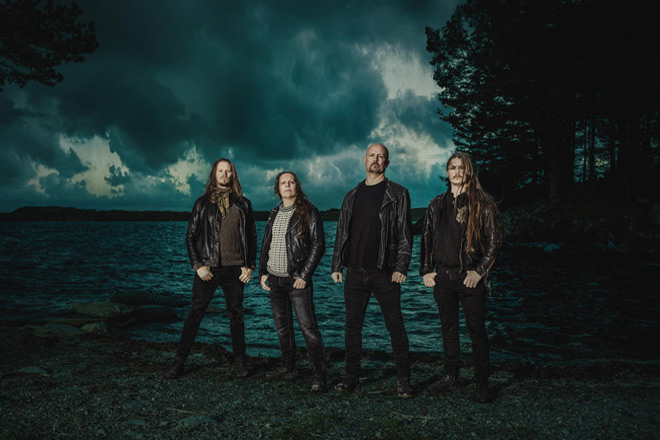
Cryptic Rock – A lot of time has passed since you recorded the Aurora Borealis demo in 1994. Looking back, how does it feel to have accomplished almost three decades of doing what you love? Did you think back then that you would be at this stage gaining popularity again, really building momentum while recording your ninth studio album, North Star?
Gerhard Storesund – I don’t think we thought that far ahead back then. It was more like a week by week, month by month kind of thing, you know? So that we would be doing this almost three decades later? I don’t think so. But, you know, I think the time goes by so extremely fast so those three decades are like a snap. It’s like when we started up again in 2003 to 2009 or something like that. When we got back from 2009, that’s like what, almost 12 years now? I don’t know where those years went, you know? And in 12 years from now I’m going to be 59. So will we be doing this in 10 years? Probably, because it goes so fast but 59?
Cryptic Rock – Right. But then you look at a band like Iron Maiden and the energy they still possess in their sixties. They still run to the front of the stage, Bruce is still jumping all over the place.
Gerhard Storesund – I just saw them in Bergen when they had their Seventh Tour of a Seventh tour a few years ago. And they were like young guys almost. Iron Maiden is still getting new fans, as well. It’s great.
Cryptic Rock – Yes. And in underground music there’s still a lot of room for that growth. A band like Einherjer, nearly three decades in, can still pull in a lot of new fans. Streaming music is never going to be as good as the physical product, but one of its only advantages is that you can get out there to a lot of people.
Gerhard Storesund – I still like physical media; I buy vinyl to this day. But yes, it is difficult to sort of crawl out from all the bands these days because, as you say, everybody’s online and immediately available to everyone at all times. When we talk about our label Napalm Records, compared with our previous label, Napalm has 1.7 million followers or something like that. So obviously that will help us. Yeah, social media and YouTube and all that, this is really a good thing. It’s just, musicians need to make money somewhere. That’s why I still buy the product.
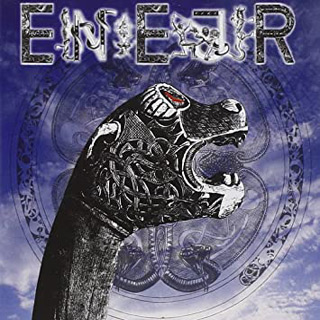
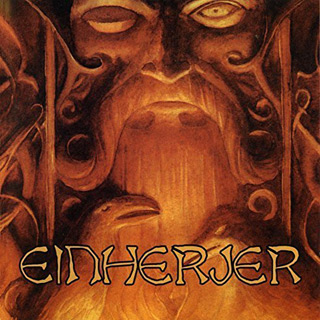
Cryptic Rock – Yes, as a lot of Metal fans do. Speaking of reaching more people, there is no better way than with new material. And you have a new album about to come out, North Star. How did this album get inspired and composed? It’s primarily you and Frode who write the music and compose all the lyrics?
Gerhard Storesund – Yes, that’s correct. It’s sort of the same way every time. We never rehearse anything out, we never jam a song out. We tried it but usually something never comes out of it for us. We like to set the piece at home and work with the song by ourselves.
For example, I write the song. I go and grind on it for maybe weeks and months before I even try to get it down on my computer, record it and stuff like that. Because when I think about a song, I want it to be mature and sort of semi-perfect before I start recording, because if I record a bad idea it’s not going to sound the same as it sounds in my head.
So I want to sort of develop it as much as possible before I record it as a sketch and then present it to Frode, and then we take it from there. And it’s the same way the other way, as well. He has his own studio and that’s where we record the album, so he records his ideas there. Usually, sometimes it’s just some ideas, as well, just riff after riff after riff to see if we have anything at all here. If we do then he can sort of fulfill his idea at home. When we make a song, it’s never finished until the album is out; we work on it to make it perfect until the very end of the mix.
Cryptic Rock – Till someone takes it away from you and says, “No more.”
Gerhard Storesund – (Laughing) Yeah, exactly. In this case it was Frode.
Cryptic Rock – Oh, that’s different this time? He mixed North Star?
Gerhard Storesund – He mixed it, yeah.
Cryptic Rock – The album sounds great. The bottom end, your drums, there is a great overall organic Metal sound.
Gerhard Storesund – It’s big, yep.
Cryptic Rock – It is noticeable over the last three Einherjer albums, the band is not afraid to inject some real Heavy Metal Rock-n-Roll guitar parts, Priest, Maiden, those types of instrumental runs, into the template of Viking/Folk Metal that you play.
Gerhard Storesund – Yes, that’s what we listen to: classic Heavy Metal. That’s the holy grail, basically, for us. Iron Maiden, Judas Priest, W.A.S.P, Accept, and all that stuff. Like 95%, I would say. And the other 5%, that’s like I don’t know, Classical music, Folk music, and stuff like that, that we sort of sprinkle on top to make it completely different, really.
Cryptic Rock – You have managed to do just that across your career, quite well. The videos for “Blood and Iron” and “Stars,” how did you guys develop those themes, and did you come up with a lot of those ideas on your own?
Gerhard Storesund – We’ve been working for many years now with a Romanian friend, both designer and video director. He made a couple videos for us before, but because of this Corona business he couldn’t do it. He still made the cover of the album and everything but not the videos. But then we had to create some backup ideas and stuff like that, so we knew a guy from our own hometown who is also brilliant, and who works with a lot of other bands. Not so much Metal, but a lot of stuff that I’m not familiar with. So, we hired him, and he made those two videos. He basically came up with the ideas himself for the most part. We just set the stage where we’re going to play it and all that stuff.
Cryptic Rock – They are quite excellent. They remind me of the old school Heavy Metal videos we used to see on Headbangers Ball back in the day.
Gerhard Storesund – It’s effective and it’s some kind of Hollywood vibe, some of it. We also actually have a new video coming out pretty soon. It’s “West Coast Groove.” It’s going to be out, I think, a couple days before the release. And that’s made by Kostans, our other designer.
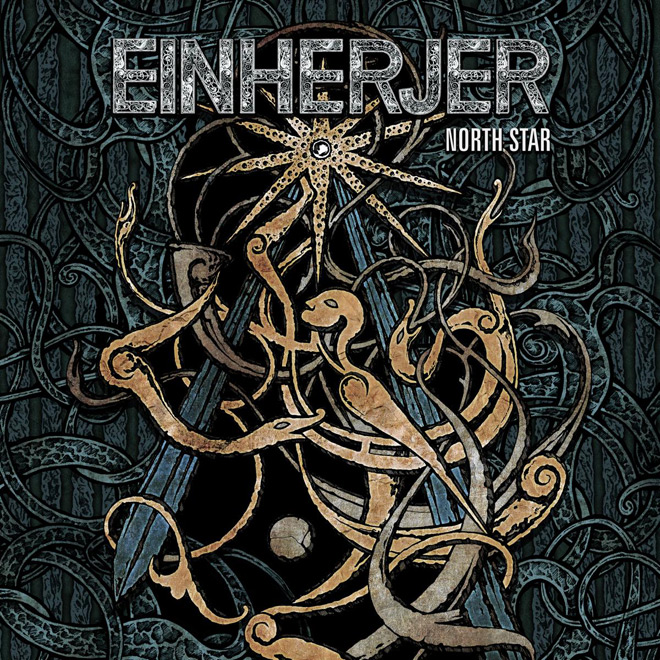
Cryptic Rock – That is something to look out for. Some kids might see “West Coast Groove” and think you guys are singing about California, but in this case we know it is the West Coast of Norway. Hopefully others will realize that.
Gerhard Storesund – It’s like some kind of homage to the place we’re from. It could easily be West California. I’ve been there, I’ve been at the Rainbow Bar & Grill and all that.
Cryptic Rock – Was it before Lemmy passed away?
Gerhard Storesund – Before, but Lemmy wasn’t there. He wasn’t at his regular chair.
Cryptic Rock – It is very cool that you were there, would have been amazing if Mr. Kilmister had been there. So here is something to pick your brain about. Obviously, when you guys began in the thick of the second wave of Black Metal coming out of Haugesund, Norway and if you look at it all, you had Enslaved, Ulver, and Kampfar doing the heathen, folkore-centric “Viking” themes. They weren’t doing the Satanic themes. Einherjer also focused on tales of Nordic myth and history, avoiding once more themes of Satan and evil and church burning. It’s almost like you guys made a conscious decision to do something different. Would you say that is accurate?
Gerhard Storesund – Yes, I think as a band we had some, I don’t know how to call it, violent upbringing in the Black Metal scene. We come from that era. We come from that place, so a lot of our music still has some of the aura around it. But still, as I said earlier, classic Heavy Metal and stuff like that is the holy grail for us. That’s the most important influence we have, and I guess that’s what took us in a different direction than all the other Black Metal bands and the extreme bands of the time. Now, I don’t know what kind of influence all these other bands had but when we started out, it was Bathory all the way. That sort of kicked off this band, the “Twilight of the Gods” style of Bathory. You can also hear ripples from Manowar in there. So that’s sort of the base layer we have, the foundation we have, and then we sort of are very influenced by Folk music, as well, but not too much. Just a little bit, just to make it different in a way. Then there’s still that little Black Metal stuff going on, since we started up at the same time in chaos.
Cryptic Rock – In a 2019 Cryptic Rock interview with Dolk from Kampfar, he said that they received threats and they were given a lot of shit for maybe not being the exact type of Black Metal that the main guys were demanding.
Gerhard Storesund – Yeah, there was.
Cryptic Rock – You didn’t come out with corpse paint and do Black Metal in your demo days, right? You always wanted to do this Bathory era, Hammerheart style, Folk-influenced, Classic Metal, right?
Gerhard Storesund – Yes, in Einherjer. But I don’t know if you’re familiar with the band we had before. We also had a Black Metal band before that called Beelzebub. We also got a lot of shit from that and threats and stuff because we weren’t, I don’t know, elitist enough, but we were basically forced to quit that band. And thank God for that, because immediately after that we started with Einherjer. I don’t know what would happen, actually, if we didn’t quit that band. We just did one demo of that band and that’s it. For me, good riddance; I’m glad it happened. But that was how it was back then. And we are from a small town on the West Coast. Kampfar also is not from Oslo; they’re from a different small town. So, I don’t know. They wanted some kind of control over the scene, I guess.
Cryptic Rock – It seems that they did. When you heard Einherjer back then, and apart from Bathory a few years earlier, there were not many bands doing what you were doing. You had Thyrfing over in Sweden, and a few others sprinkled around the world. And here’s one thing that always struck me, when Odin Owns Ye All (1998) came out, forget it. A lot of people love that album and sing the whole album.
Gerhard Storesund – Yes. A lot of people do.
Cryptic Rock – Now they do. You go back, reading album reviews that were like, “Oh, it’s cheesy, it’s terrible, it’s this, it’s that.” They didn’t like the musical shift. They didn’t like Ragnar’s vocals. Did it ever strike you that only a few years later the clean vocals, more forward folk elements and singalongs became the trendy sound and every Folk band in the world, all the Finntrolls, Korpiklaanis, Turisases, all that stuff became super popular. You were doing that well before it was popular and only recently have you begun to get some credit for doing so.
Gerhard Storesund – We were cheesy before it was cool. So, yes, I agree. When we quit the scene in 2003 or something like that, we just left everything behind. And when we got back in 2009 something just exploded with the style we had on Odin Owns Ye All. So, yeah, I understand what you mean.
Cryptic Rock – You guys did it first and you did it better, in my mind. That album is a beautiful album, that’s a great album.
Gerhard Storesund – I don’t think we knew what we started.
Cryptic Rock – Right, of course. You were just playing from the heart.
Gerhard Storesund – Yeah. I’m not going to hate on the album but there’s a reason why we sort of went back to the original vision we had with the band.
Cryptic Rock – Oh, of course. Nearly every band with tenure does that. The late ’90s especially was where everyone from My Dying Bride, Moonspell, and Amorphis over to Kreator and Samael all had their moments of experimentation.
Gerhard Storesund – I remember Renewal (1992) from Kreator, when that came out. I kind of liked it but then it was not a Terrible Certainty (1987).
Cryptic Rock – Artists have to be able to test the borders of their art to a certain extent.
Gerhard Storesund – It’s not easy to make all fans content.
Cryptic Rock – One might say it’s impossible.
Gerhard Storesund – It’s like Slayer. You know how they did South of Heaven in 1988, and I love that album but I’ve fallen off the wagon. You know what I mean? It doesn’t matter what they do now, it will never be better than South of Heaven and all that came before it. It doesn’t matter how much better their compositions are or anything like that. It will never be better. That’s because of nostalgia.
Cryptic Rock – Yes, of course. It is tied to where you were at that moment in time. Back when it didn’t hurt to get out of bed – it didn’t hurt to get out of bed when you listened to Hell Awaits for the first time.
Gerhard Storesund – I also remember that. But I remember also what you mentioned when Odin Owns Ye All came out because we just released Dragons of the North (1996) and the Far Far North EP (1997). And they were quite similar. And then suddenly we were supposed to be on a new record label. And they had no idea that we changed anything at all, so they got really surprised about this stuff when Ragnar started singing and all that. I don’t think that’s what they were expecting.
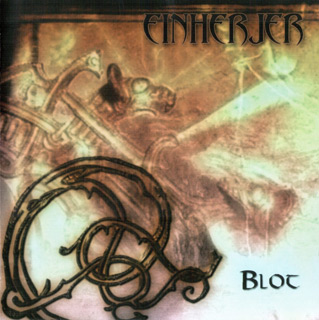
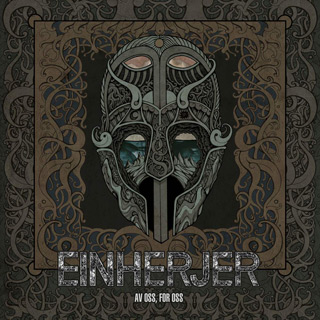
Cryptic Rock – And just talking about the themes of ancient legend, history, and the old ways that are a constant in your music and your lyrics and your imagery. Living here in the 21st century, what do these things mean to you personally? They’re way more than just escapism and fantasy, I realize that, but what can they teach us? Why do you keep returning to those themes?
Gerhard Storesund – I’m not sure, really. I think it’s more like a connection. For me the Viking stuff, the history. It’s more like a connection to nature, you know what I mean? We don’t have that now. Living intact with nature. Also, self-reliance with nature. If anything breaks down right now, I’m helpless. If electricity goes out. Take Texas, for example, right now. To make an example, people are completely helpless. They rely on someone else to fix it for them. Back then, people were a lot more self-reliant. If you needed something, you made it. We don’t do that today, and much of our connection with nature is severed. Wood and earth.
Cryptic Rock – That’s true. On top of that, when you’re raised with Abrahamic western religion, as most of us were, you usually get some form of a religious education. Many of our fellow Extreme Metal fans reach a point where this music changes you, shows you something deeper and more fulfilling than a religious dogma that’s forced upon you. I’ve always felt that the imagery and lyrics surrounding bands like Einherjer give us something similar to religion, but without the dogma.
Gerhard Storesund – Something that just sits deep within, that you’re inherently born with basically. You know what I mean? I also have the semi-Christian upbringing. My mom is pretty distraught by all this stuff.
Cryptic Rock – Bands like this, the meaning, the feeling you get is just deeper. You can sense a real focus from this band. You guys tried different types of sound and now when you reformed maybe, you hit this stride and it seems like you’re on a really good roll.
Gerhard Storesund – I think so too. It’s like I would say there’s two bulks of Einherjer. The one before the break, so to speak, because then there was a lot of turmoil within the band. We had some lineup changes, changed record companies and all that stuff. And also, the style varied a little bit. Dragons of the North (1996) and Far Far North (1997), quite similar. Then suddenly Odin Owns Ye All, that sort of went straight out to the side. Norwegian Native Art (2000) got a little bit back and Blot (2003), I would say it’s the same recipe at least as Norwegian Native Art (2000). Quite technical and detailed but still all in all, that bulk is quite schizophrenic you would say. But after the break, in between there we had a band called Battered, like a Thrash band. And we traveled a bit around and made an album. And it was great fun. And I think we also learned a bit about the power of riffs. Make a great riff, that’s awesome. And I think we’ve implemented that a lot in all from the Norrøne Spor (2018)album and until now. And I think the progression has been a lot more stable, the lineup and everything. I think we’re in a really good place right now. Unfortunately, you probably heard that Aksel (Herloe, guitar) quit the band?
Cryptic Rock – How long ago?
Gerhard Storesund – It’s recently. And he was with the band for, I don’t know, over 20 years. We hate it but he’s got a lot on his plate with work and everything, family. Yes, but that’s sort of the major event that we had. We got a new one, Tom Enge.
Cryptic Rock – You soldier on. North Star is great and when you’re playing that “going into battle” style beat and then it busts out into a wicked set of leads. You do it so well.
Gerhard Storesund – I think what I realized many times about our own music, it’s very stomping and marching kind of vibe to it, it’s a subconscious thing.
Cryptic Rock – So, in conclusion, as Cryptic Rock also covers films, what are some of your favorite Horror and Science Fiction movies?
Gerhard Storesund – One film comes to mind: It Follows (2014). I remember seeing that on a Sunday when I was really hung over. I had to minimize the screen and turn down the sound. I don’t know, for some reason it really got to me, that movie. I also enjoy Babylon 5.
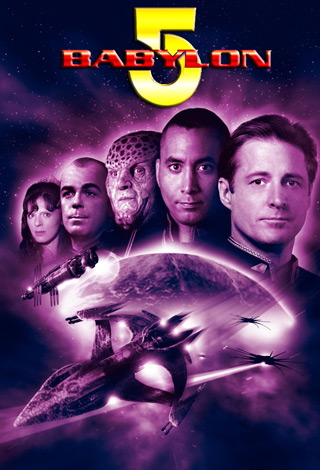


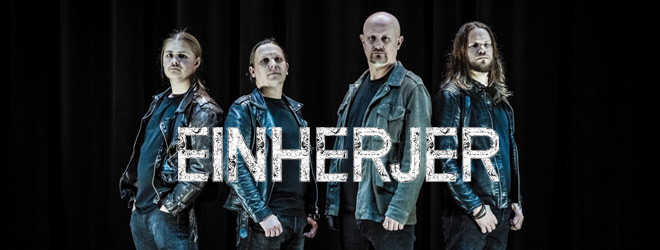
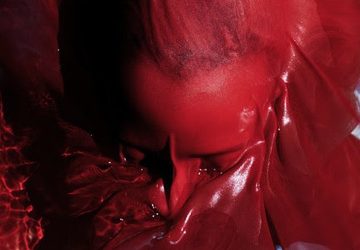



No comment